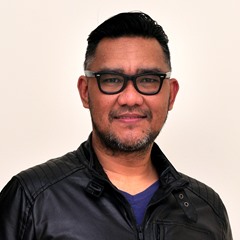The government worker accommodation projects, which will be developed with local partners in three phases are not labour camps or typical housing blocks or barracks, but fully-integrated, full service, and “well-thought-out” communities, said Daruna projects director Dr Sean Cashin.
Speaking at the Green Expo Forum Qatar, the official said Phases 1 and 2 of the project represent 30% of the current Government Allocated Permanent Worker Accommodation projects in Qatar.
He said Phase 1, which was contracted in October 2015, features a 4,000-bed Single Residential Facility (SRF) at Umm Salal Mohamed, while Phase 2 will provide a 28,000-bed Integrated Worker Accommodation Community (IWAC) facility at Al Khor.
“The key issue is that there is a lack of high-quality workers’ accommodation […] there is a very tangible recognition that the value of improving worker welfare is a direct improvement, and a direct benefit for the country,” Cashin said.
Phase 2, he explained, will feature a city centre with retail, consular and health services, municipal utilities, plus sustainable technologies, and an expansion capability of 10,000 to 12,000 beds.
For Phase 3, Cashin said the three IWACs are expected to be tendered in early 2017. He stressed that the IWAC facilities “meet or exceed” the worker welfare standards of the Qatar Ministry of Municipality and Environment, Supreme Committee for Delivery & Legacy, Qatar Rail, Qatar Petroleum, and Aspire Foundation.
“The project is a first in terms of the government’s direct response to the challenge of providing better living conditions for migrant labourers. It is a unique model for the government to be looking at the private sector to assist on a BOT (build-operate-transfer) model […] our delivery is very much driven by their vision and expectations,” Cashin told Gulf Times on the sidelines of the event.
He added: “The standards that have been issued by the government are very much driven around creating a community that is high-quality, safe, secure, and provides long-term benefit, but also something that can be reused by them in the future. But fundamentally, if you look at the short-term, there is an acute demand of fully-compliant supply in the country […] the government has a plan to address that.
“At the same time, the argument being pushed around is that ‘there is no compliant supply’ […] the government is now addressing that by providing the supply themselves […] If you have workers that are well-looked after, well-cared for, fed well, and rested, they perform well, there are higher safety standards, and there’s a quantifiable economic benefit to that.”


